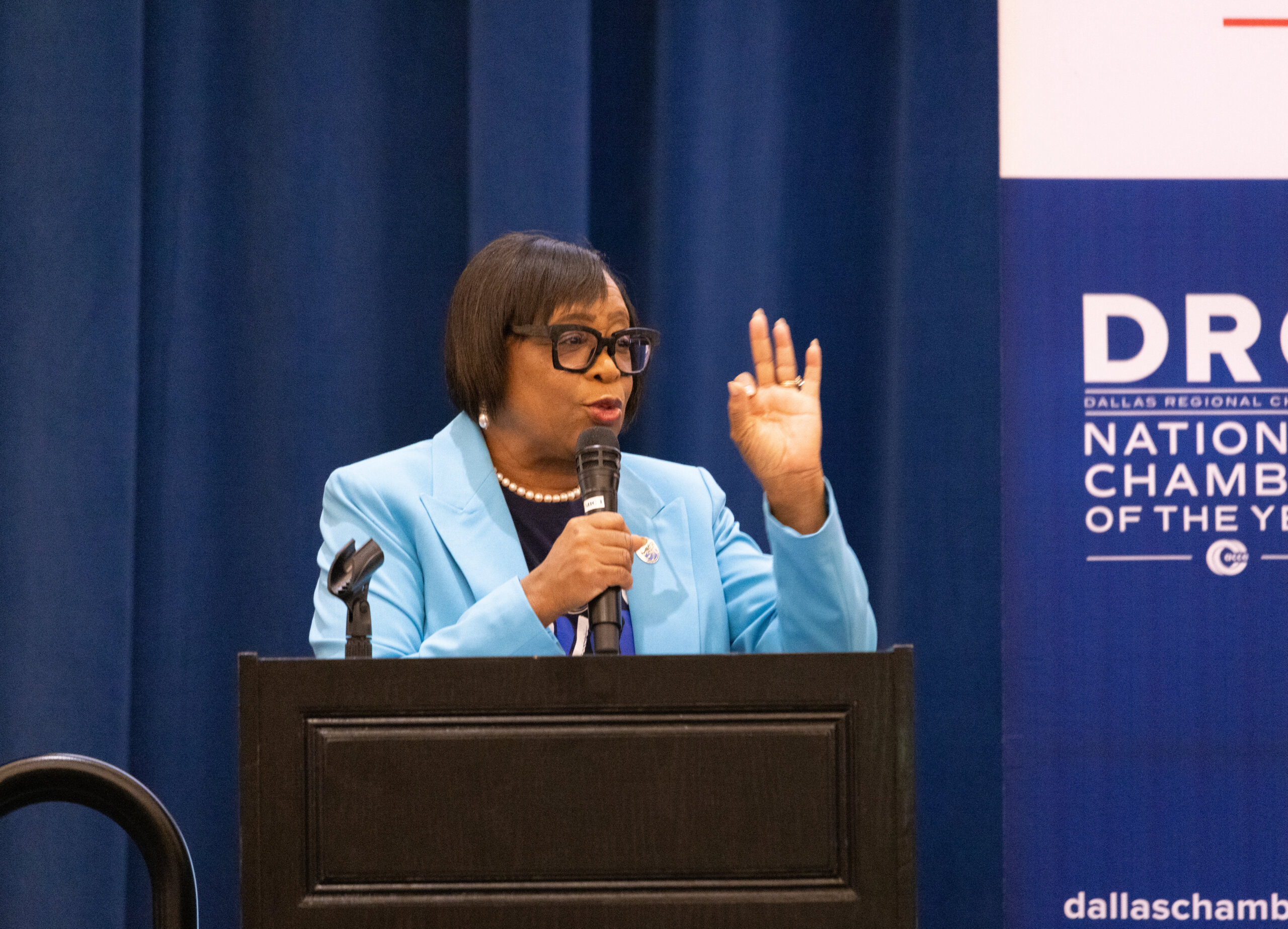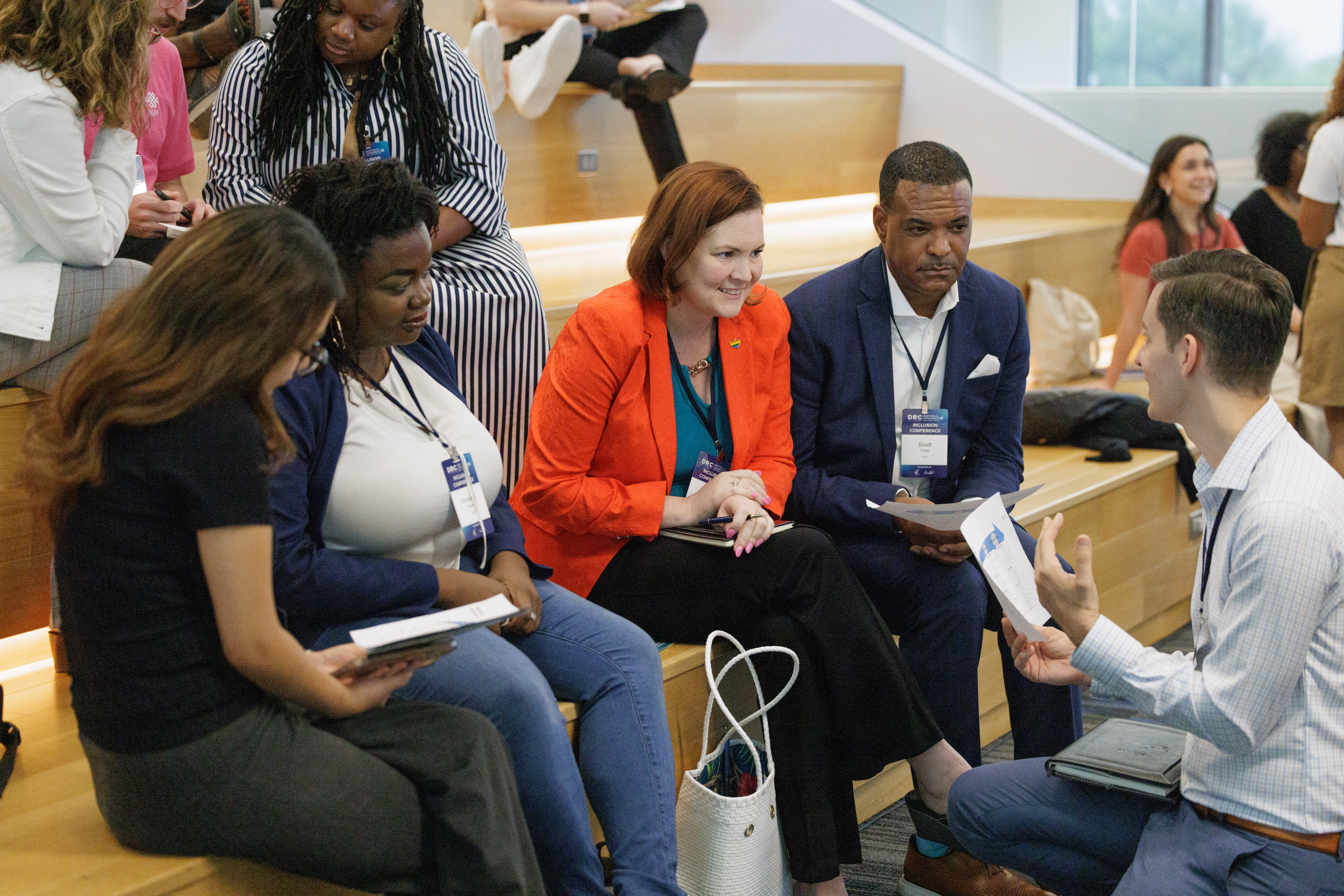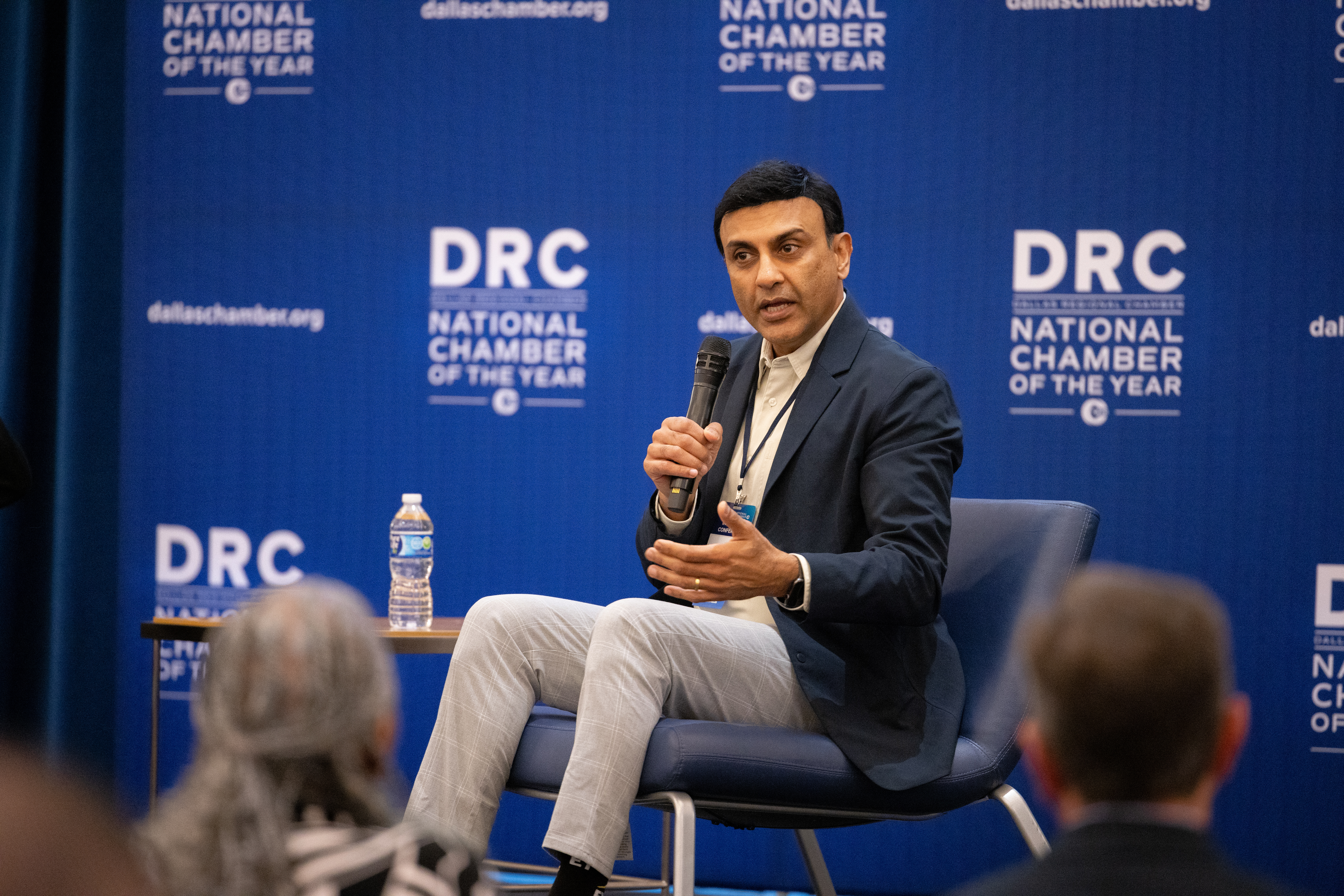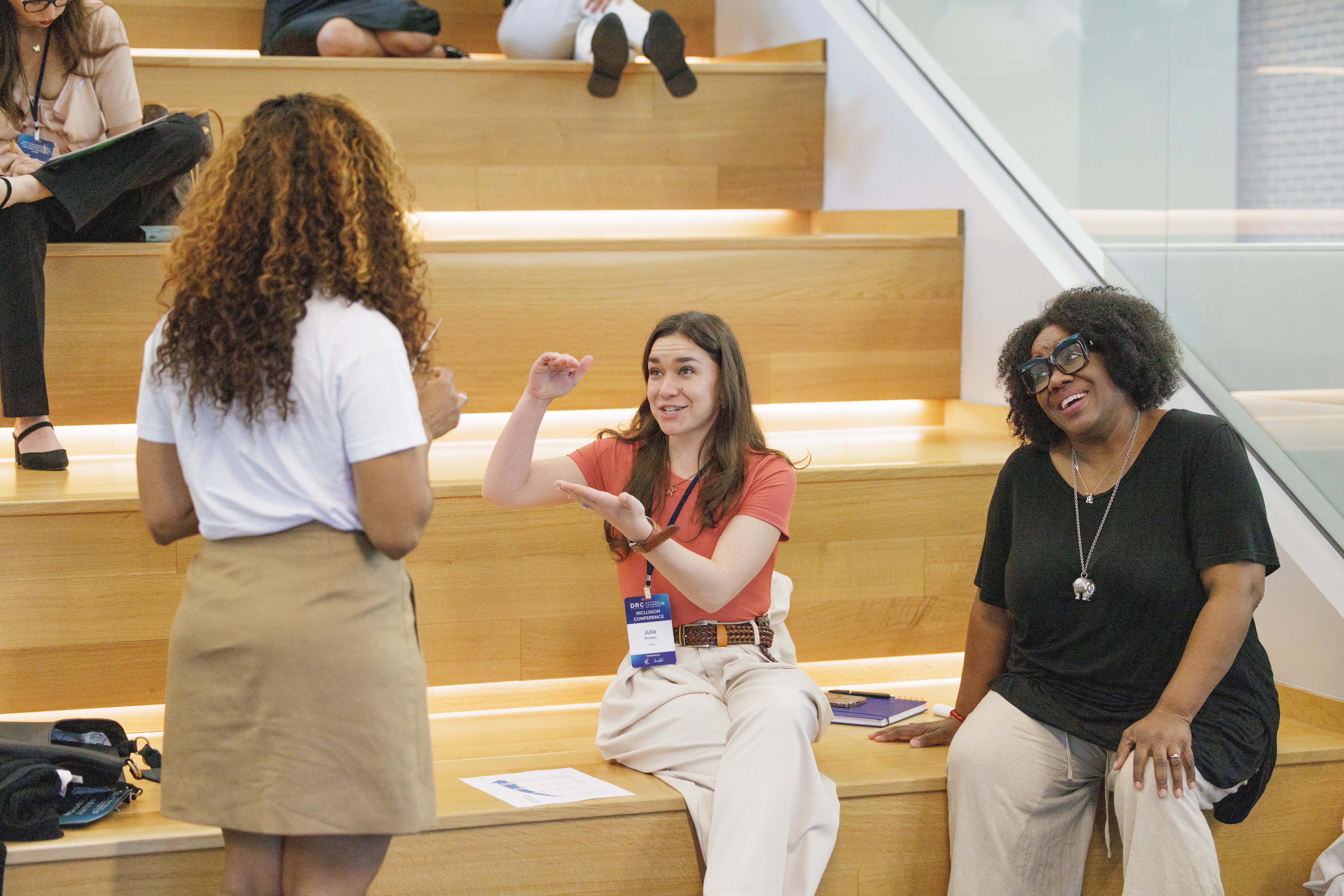By Catie George, Director, Communications & Storytelling
The Dallas Regional Chamber (DRC) hosted its annual Inclusion Conference (formerly State of DEI), presented by Ernst & Young LLP and Invited, at the University of North Texas at Dallas’ Campus on Wednesday, June 12. Read the takeaways below.
This event was a first.

“We decided a long time ago we wanted Dallas to set the global standard for inclusion,” said Cynt Marshall, CEO of the Dallas Mavericks and 2024 DRC Board Chair. With the DRC’s Inclusion Conference focusing on disability inclusion for the first time, this is becoming a reality.
This year marked the first time this event had breakout sessions discussing the importance of the keynote topic and related issues. In the four breakout sessions following the main event, attendees heard about the importance of mental health in the workplace, how to advance DEI, the importance of corporate action, and how disability inclusion is a competitive advantage for businesses.
The DRC also launched its Disability Inclusion Toolkit, a first-of-its-kind guide to assess and maximize companies’ inclusion of people with disabilities.
Disability inclusion is often overlooked, and there is still a long way to go.
With the unemployment rate for people with disabilities being more than double the rate for those without, the disability population’s struggle for equity is still ongoing.

“Whether seen as a negative or a positive, disability has often had an ‘othering’ effect about it, even though the truth is most people have or will have a disability at some point in their lifetime,” said DRC Storyteller and Data Journalist Nicole Ward. “The U.S. Census estimates that 27% of the population has a disability. That’s about 91 million people or roughly twelve Dallas-Fort Worth’s. The CDC estimates that 86% of people who have disabilities have, or also have at least one invisible disability.”
Everyone’s perspectives and voices are needed to shape an inclusive future.
“There’s a saying in disability work: nothing about us without us,” said Shelly Brisbin, producer and reporter at the Texas Standard. “So, folks who are disabled, folks who identify with a variety of disabilities, are part of this conversation.”
Diversity is essential to good performance and better outcomes.
Innovation comes from thinking differently, and the neurodiverse population inherently thinks differently, said Global Neurodiversity & Inclusive Value Leader at Ernst & Young LLP Hiren Shukla.
The problem is people in this population, “in many cases, are unemployed, underemployed, and on the fringe of the workforce in society,” said Shukla. “At the end of the day, we are going to bring you the most diverse team with the greatest perspectives that will innovate and that has a high sense of belonging because we know that high-belonging teams are high-performing teams. And so, we’ve directly connected the sense of inclusion into the value and the performance that we will bring at the end of the day.”

Organizations should take the initiative to create inclusive cultures.
“I think that the moment you start strategically thinking about ‘why’ and ‘what would disability inclusion do for our own employees, for our customers, and for our communities’, I think that’s what grabs the attention of leadership,” said Shukla. “Diverse teams will always outperform less diverse teams. But you need deliberate, intentional orchestration and psychological safety.”
To establish a safe environment in which innovation can excel, leadership must embrace the work of creating an inclusive culture.
“We believe true leadership lies in creating an environment where everyone’s abilities are recognized, valued, and leveraged,” said Marshall. “By embracing diversity and fostering inclusion, we can drive positive change and unlock new opportunities for growth.”
According to Shukla, because of their inclusion efforts, EY has seen 93% retention over the last nine years in some of their most hard-to-find jobs, like cybersecurity.

The DRC has resources available to help companies increase their disability inclusion.
The DRC’s Disability Inclusion Toolkit is a free resource for companies and organizations. The DRC has also published a series of articles on creating an inclusive workplace.
Thank you to our co-presenting sponsors, Ernst & Young LLP and Invited; gold sponsors Axxess, KEIRUS by KJE, Oncor, and the Law Offices of Erika N. Salter, PC; and our silver sponsor DFW International Airport. Thank you to all our marketplace partners: Accenture, the Dallas Holocaust & Human Rights Museum, the North Texas Disability Chamber, and the Texas Muslim Women’s Foundation.
To learn more about the DRC’s Diversity, Inclusion & Community Engagement work, visit our website.